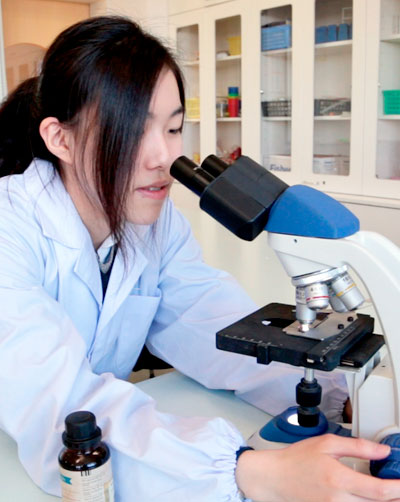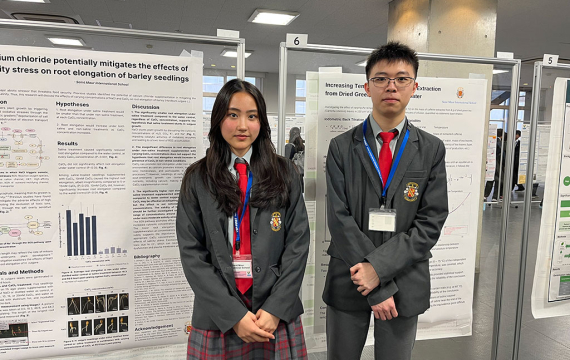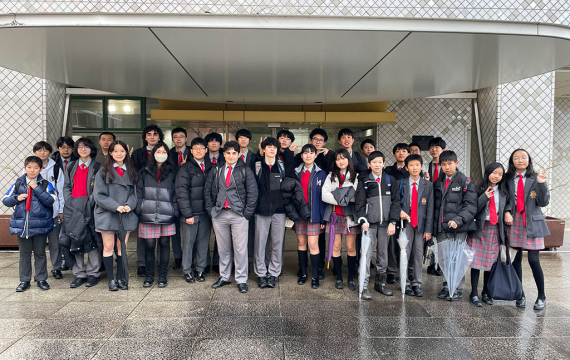

- Christina Fürstenau
- Fine Arts
After 1984 Drama Performance - Breaking Gender Stigma
This year’s High School Drama Club production was an original adaptation by Nicolas Gregoriades, the Director of Fine Arts and Head of Drama at Saint Maur International School, of George Orwell’s dystopian classic “1984“. It featured three Winstons (the protagonist) and an ensemble of 16 actors who have been guided by Grade 10 student, Yuka, in some spectacular feats of physical theatre.
In addition, there were two different casts – one a “traditional gender” cast and the other, a “reverse gender” cast, where all roles were played by members of the opposite sex. This was a small attempt at trying to overcome centuries of male dominance in the theatre and to allow the young women who attend Saint Maur to experience more complex and varied roles. These strategies allowed the audience to see this mid-twentieth century story from a modern and fresh perspective.
The play “After 1984”, based on the novel “1984” by George Orwell, sets itself aside from a typical high school play - the heavy connotations in every scene serves to give the audience a feeling of unsettlement. Indeed, that is exactly the purpose. The play addresses many issues relevant not only to Orwell’s time, but also to many aspects of society today. With the rise of AI (Artificial Intelligence), we are forced to watch the characters, similar to ourselves, be succumbed by the overwhelming surveillance of an oppressive government. With the play addressing many ethical concerns of AI surveillance, the concept of a totalitarian government, and the emotions and personalities of the human race, the audience can only watch as the world of Orwell’s 1984 unfolds before our eyes.
The play also attacks the concept of gender reverse casts, where females play male roles, and males play female roles. Indeed, the play has two sets of casts (excluding the ensemble) - an original and gender reverse cast.
The concept of gender-reversing, although more important now than ever before, has been around since Shakespearean times. There seems to be an unaddressed allure to the telling of tales in different lights, prominent in the depiction of Julia- In the original gender cast, Julia, (played by Julia Turner) shows Julia as she is in the books; a beautiful woman, empty in the head and only “a rebel from the waist down”. In the gender reverse cast, Julian, (played by Louis Hyuma Hagenbucher) shows a suave, passionate young man, free of troubles and single-minded. The same shallowness is depicted in both genders, as the unfortunate Julia was written in a very single-dimensioned manner. But, seeing a young man in the same position, with an ambitious woman at his side, unsettles some of us, and inspires others.
With such heavy atmosphere, it seems the play tells us nothing but failure and confinement. However, like that of Orwell’s intentions, we can view the play from a more optimistic view - we must act as ourselves, answer to reason and logic, and most of all, as Winston implores of us in the play,
“Rise up!
Rise up!
Rise up!”







_thumbnail.jpg)